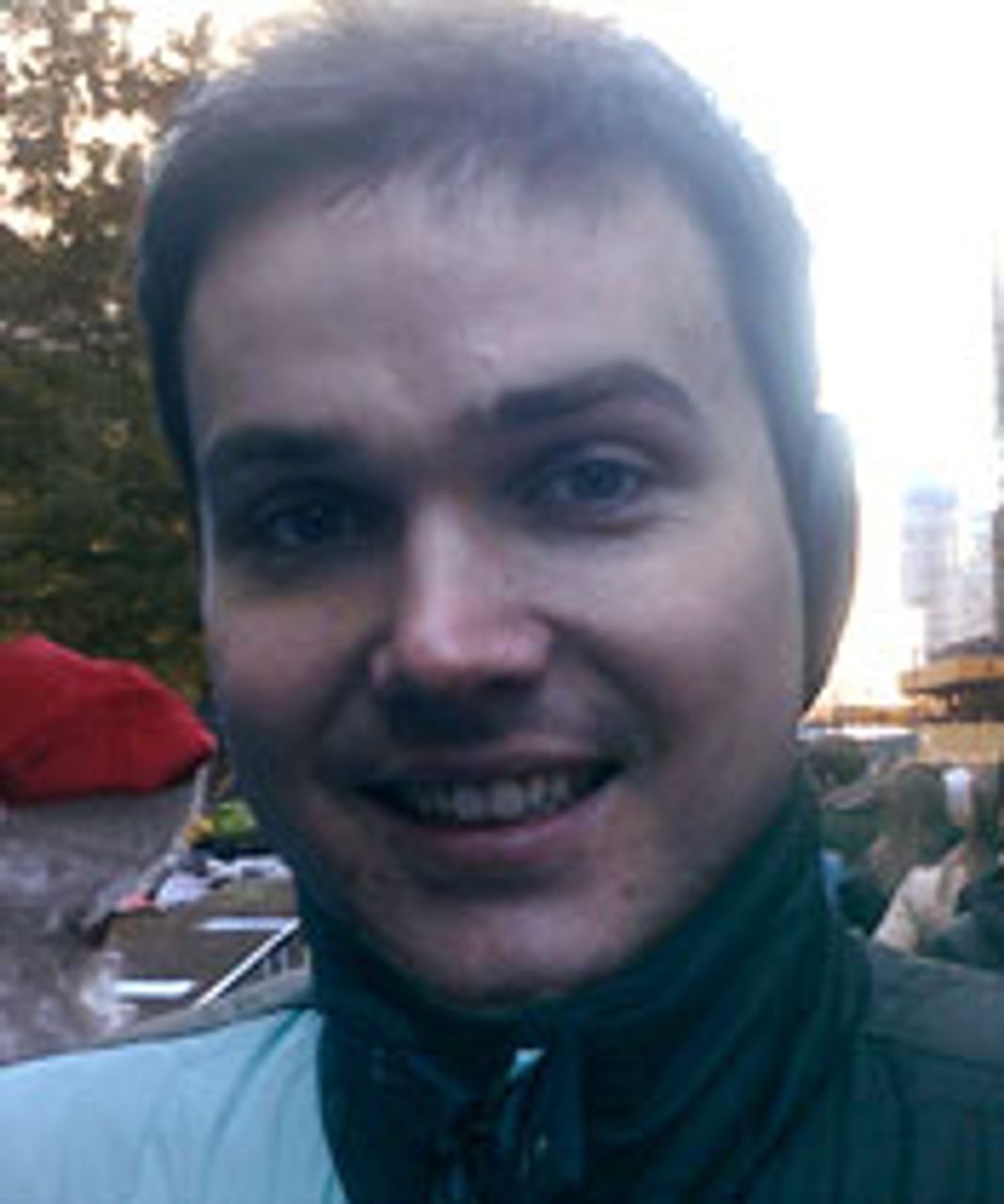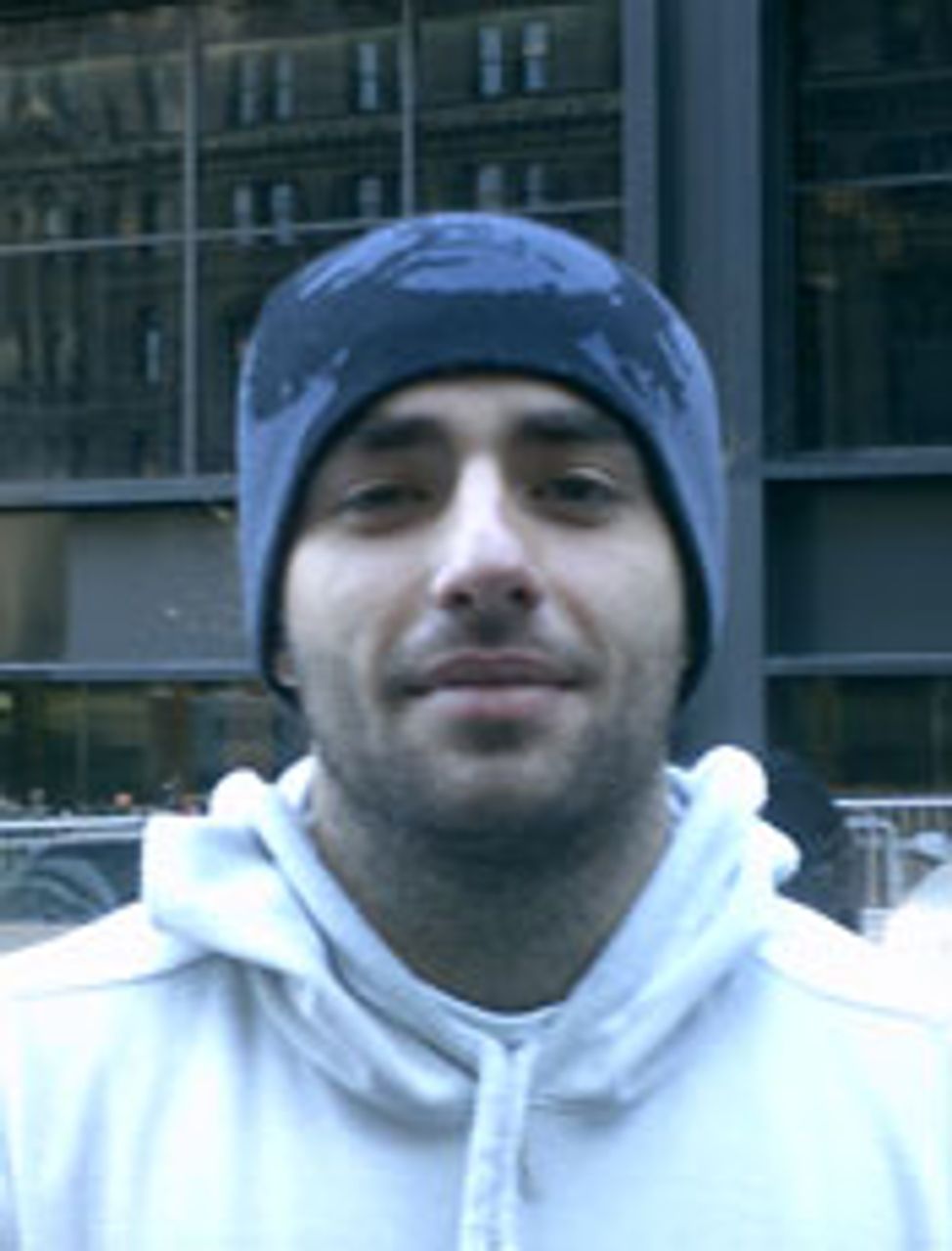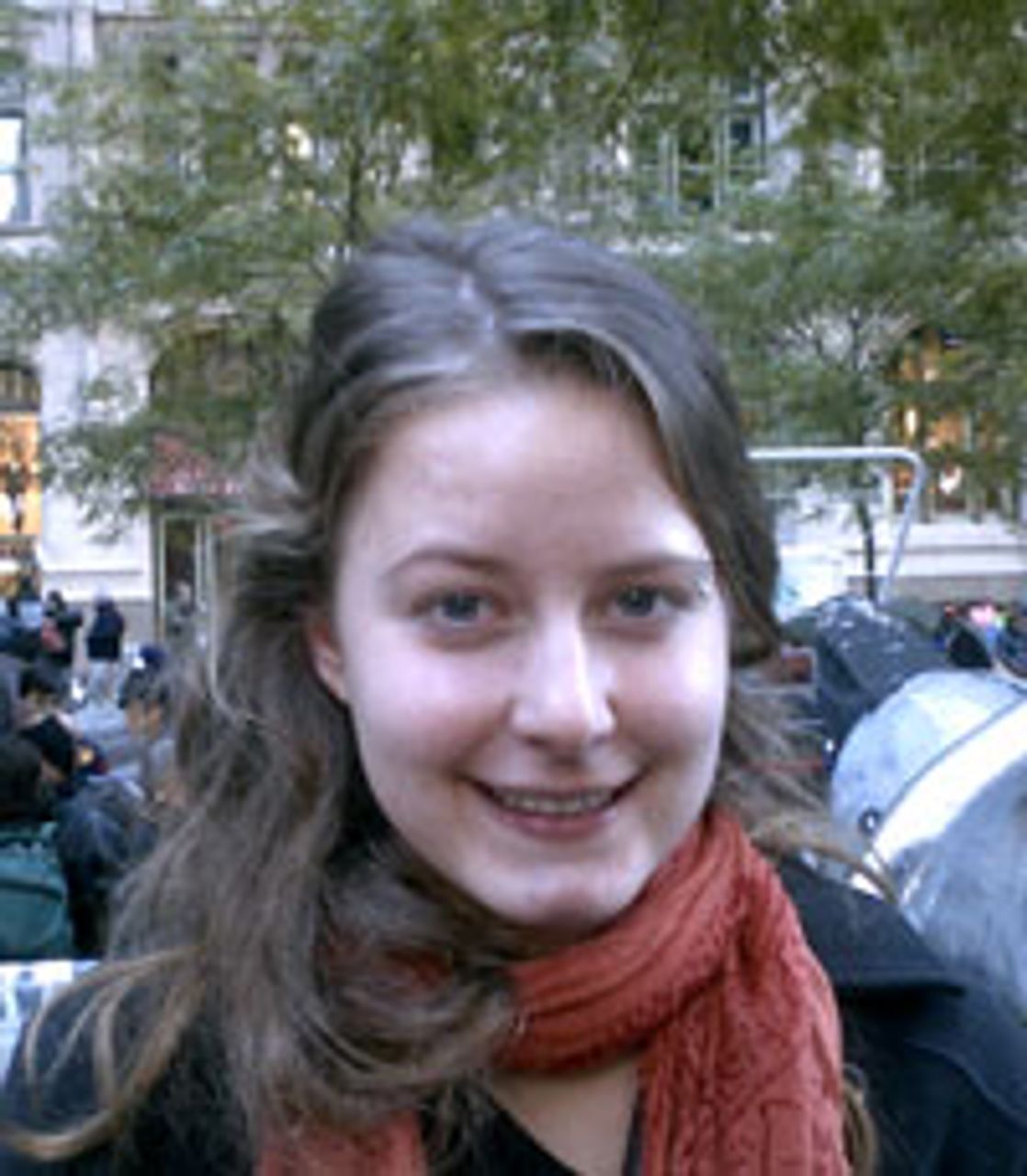A group of protesters from Zuccotti Park in lower Manhattan have begun a two-week march to Washington. They hope to cover the 230 miles at a rate about 20 miles a day, picking up supporters in cities and towns along the way.
“We wanted to connect the occupations,” an organizer of the march, Michael Glazer, a young unemployed actor from Chicago, told the Daily News. “We are going to let the politicians know we are watching them. This isn’t business as usual any more.”
The march will go through Trenton, Philadelphia, Wilmington and Baltimore, as well as smaller cities.
Glazer has been part of the Occupy Wall Street encampment in New York for the past month. His comments are consistent with the militancy and determination that is characteristic of many of the young and unemployed protesters who have camped out in Manhattan and dozens of cities across the US as well as Canada, but they also highlight the growing need for a programmatic alternative to capitalist “business as usual.” Lobbying the big business politicians in Washington, if that is what is envisioned, will be worse than useless, sowing illusions in the two-party system instead of exposing it.
At the Zuccotti Park encampment, where the anti-Wall Street protests began almost two months ago, there are definite signs of growing pressures being brought to bear against the protesters by the media and capitalist politicians. New York Mayor Bloomberg has kept up a steady drumbeat of attacks, this week claiming that the protest is making life miserable for the residents of the surrounding area, and arguing that economic and social problems are not the responsibility of the bankers.
The media this week discovered what the New York Times called “rising concerns about crime.” Rupert Murdoch’s New York Post piled on with filthy claims that “It’s crime all the time at Zuccotti Park,” seizing on a few incidents and quoting unnamed “law enforcement sources.”
At the same time, local Democrats are trying the opposite tactic, swearing their support for Occupy Wall Street and using their money and influence to try to turn it into a pro-Democratic Party lobby.
On November 7 State Senator Adriano Espaillat and City Councilman Ydanis Rodriguez led hundreds of people on an 11-mile march from the heavily Hispanic Upper Manhattan neighborhood of Washington Heights down to Zuccotti Park. They were joined by local trade union officials.
Undoubtedly many workers joined this march to demonstrate their sympathy with the Occupy movement and their outrage over unemployment and inequality, but the record of the Democrats, from Washington Heights to Washington DC and the White House, has proved over many decades of bitter experience that this is a party of big business and Wall Street.
The WSWS has interviewed a number of Occupy Wall Street participants in the past few days.
Three supporters of Occupy Wall Street from New Jersey stopped to discuss the issues. Guido Sanchez, a teacher from Jersey City, and his partner George, who works in home health, had been to OWS previously but were now bringing Guido’s mother, Helen Sanchez, who lives in central New Jersey and manages a restaurant.
Helen, describing her first impression, said, “I think it is important and needs to grow. It must be stressful because they might come and take them out any time. Over the years I have demonstrated. I think we have lost a lot of freedom. Now people are arrested just for t-shirts they wear. The Patriot Act has to go away.”
George said, “I make appointments for Visiting Nurse Service. Visiting Nurse Service is very understaffed. I have more appointments to make than nurses to do visits. Nurses make evaluations to determine the health care and services that patients will need. There are changes needed for caring but the government is less and less willing to provide services the people need. Many people do not pay attention to this. The union does not pay attention to the problems.
 Guido Sanchez
Guido Sanchez“I don’t feel the two-party system works. Obama has not done anything for me. When I voted for him, I felt like I was picking the lesser of two evils. The idea of a workers’ party would make sense—the current system does not.”
Guido added, “I guess there is hope that this is the beginning of a revolution that awakens people to how these structures work and how we are propping them up, how the two-party system is corrupt, and how the educational system is not designed to educate people. It has been broken for a long time and they essentially try to brainwash people to prop up the current structures.”
 Arev Steffen
Arev SteffenArev Steffen, a student at Concordia College in Bronxville, NY, spoke to the WSWS. “I came here from Brazil, in the south near the border with Argentina, in 2008. I came in August just before the Wall Street collapse of Lehman Brothers. I thought Lula was a good president when he was first elected in Brazil, but after the second election the government is nothing but corruption.
“The Occupy Wall Street movement is international, and I support this. In my hometown of Porto Alegre in Brazil, there is a movement similar to what is happening here. They are occupying parks with tents and have made signs against the banks, corruption and capitalism. This has been going on in Rio de Janeiro as well.
“I know this was going on in Rio last week, although I don’t know what is going on there now. It wasn’t as big or threatening there as it is here so the police may not have attacked it. There are other places in Latin America where the Occupy Wall Street movement is going on. It is growing for sure. The international spread of this movement shows the system is corrupted at its roots. It shows the system of capitalism is not working.
“The awareness is the same internationally, and this is important for the people of the world. This movement is addressed to the working class.
“I believe Obama is a figurehead in government. He has proved he is on the other side.”
 Sadye Stern
Sadye SternSadye Stern, a student at NYU, said “I think the Occupy movement is a wonderful thing. The power is in people getting together and participating. The worst thing is for people to suffer together, individually, without any social movement.
“When you are in college you learn about things going on in history and how they are connected to things that are going on now. The interests of business dominate around the world, and they are sucking up the resources and quality of life everywhere.
“I was in Latin America. I studied the history of all the dictators in the 1970s and 80s. These dictatorships were conflated with the corporate interests. What I have been learning is that there is a really obvious power imbalance between the majority of the people and these business interests.
“I strongly supported Obama in 2008,” Sadye said, noting that his campaign had mobilized substantial support from ordinary people. “But what has happened since he got into office? It feels like nothing has gotten better, and things have probably gotten worse. The past couple of months, I’ve been finding the Democrats and Republicans have very few differences. The working people need a new, legitimate source of representation.”
